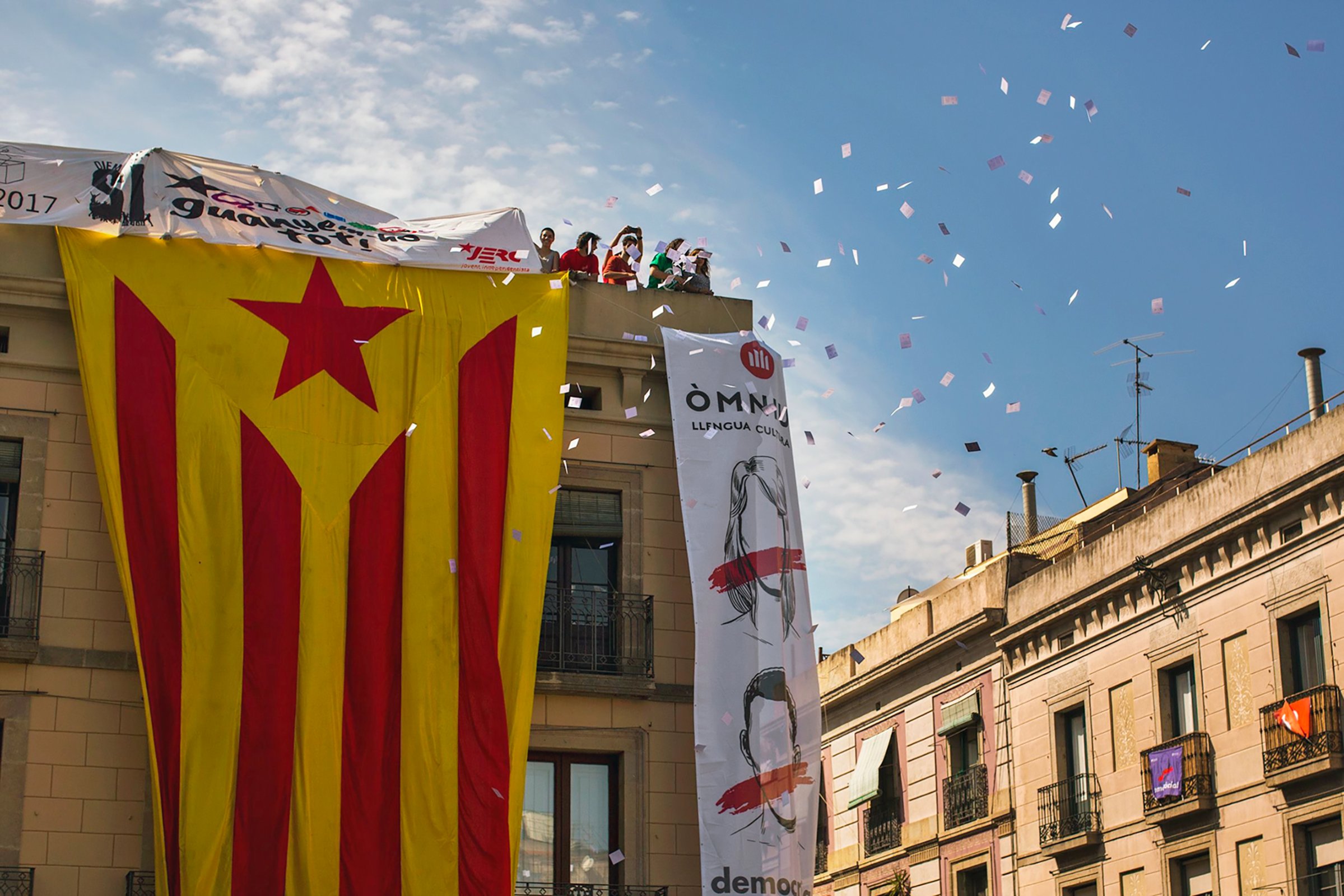
The populist wave of 2017 may not have destroyed the European order in the way some predicted, but there are still many Europeans who want to upend the status quo. Look at what happened in Germany’s elections on Sept. 24: Angela Merkel, a leader best known for prudence and experience, won a fourth term as Chancellor. But just as anti-E.U. firebrands Geert Wilders and Marine Le Pen pushed past Establishment parties to finish second earlier this year in Holland and France, respectively, Germany’s anti-immigrant, Euroskeptic party Alternative for Germany (AfD) became the first far-right party to win seats in the German Parliament since the Nazi surrender in 1945.
In Spain, meanwhile, a different sort of anger is brewing. On Oct. 1, Catalans will cast ballots in an independence referendum that has generated outrage across the country. The constitutional court declared the vote illegal, but separatist leaders have defied orders from Madrid to call it off. Spanish police have raided regional government offices, arrested more than a dozen separatist leaders and seized millions of ballots–provoking protests involving tens of thousands of people in Barcelona and across Catalonia. Podemos, a left-wing Spanish political party fueled by anger at E.U.-imposed austerity, has called on the Socialist Party to join in a bid to remove Spanish Prime Minister Mariano Rajoy from office so that a new government in Madrid can negotiate terms of a referendum with Catalan officials.
In France, voters elected pro-E.U. centrist Emmanuel Macron as their President earlier this year, but this was no vote for the Establishment. The traditional parties of center right and center left that have dominated French politics for decades were humbled in the election. Macron leads a party that he invented from scratch less than two years ago. Yet French voters are still discontented; Macron’s approval rating fell from 62% in May to just 40% in August (although it has since risen to 45% in September), and tens of thousands of people took to the streets against the President’s new labor reforms on Sept. 23.
In the U.K., the Labour Party and its far-left leader, Jeremy Corbyn, picked up enough new seats in the June elections to strip Prime Minister Theresa May’s Conservative Party of its parliamentary majority. But don’t count on a strengthened opposition to push for a softer Brexit; majorities in 162 of the 262 constituencies that Labour won voted last year to leave the E.U., and there’s no sign they’ve changed their minds. British working-class voters have proved they can reject both Europeans and their Prime Minister.
Then there’s Italy. Currently locked in a political stalemate, the country will likely go to the polls again next year, electing either another fragmented government that can’t advance political or economic reform, or a government led by comedian Beppe Grillo and his virulently anti-E.U. Five Star Movement. Anger here is fueled in part by a migrant crisis that has eased elsewhere in Europe but has grown more intense in Italy. In the first half of this year, 10,000 migrants reached Greece and 6,000 arrived in Spain, while Italy accepted more than 80,000.
It doesn’t help that eastern E.U. members–Poland, Hungary, the Czech Republic and Slovakia–have refused to take even modest numbers of migrants. Under an E.U. quota system, these four nations were expected to accept about 11,000 refugees. Slovakia and the Czech Republic have taken 28 people. Poland and Hungary have taken none. The European Court of Justice has rejected appeals by Hungary and Slovakia, and the E.U. has threatened to reduce subsidies if they don’t comply. Angry people in Eastern Europe may be about to become much angrier.
Media attention has focused on the charismatic populists who play leading roles in these stories: Le Pen, Wilders, Grillo and Hungary’s Viktor Orban. Instead, it’s the crowds cheering at their rallies that are the real story. They want fundamental change, inside their countries and across Europe. So far, they’re not getting it.
More Must-Reads from TIME
- Trump and Musk Have All of Washington on Edge
- Why AI Safety Researchers Are Worried About DeepSeek
- Behind the Scenes of The White Lotus Season Three
- Why, Exactly, Is Alcohol So Bad for You?
- The Motivational Trick That Makes You Exercise Harder
- 11 New Books to Read in February
- How to Get Better at Doing Things Alone
- Column: Trump’s Trans Military Ban Betrays Our Troops
Contact us at letters@time.com